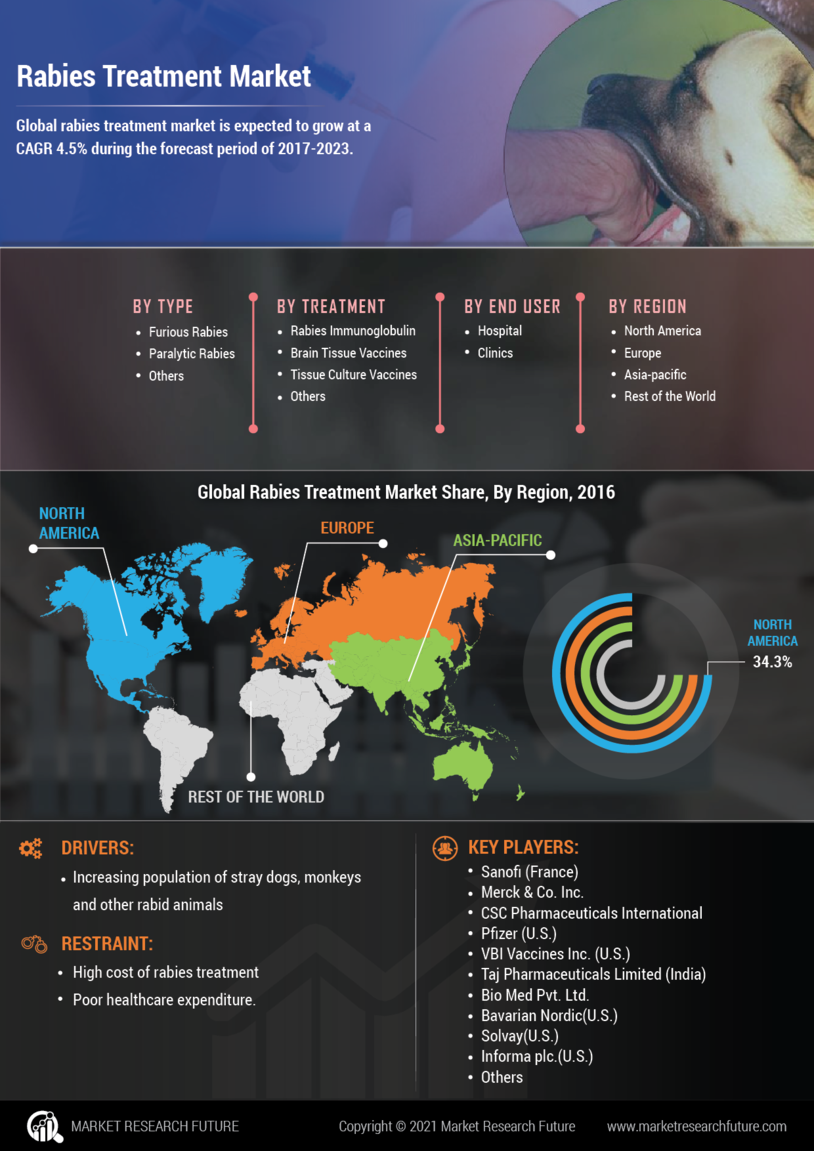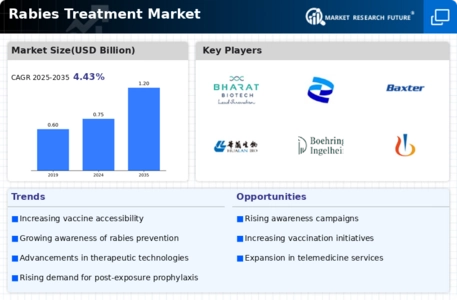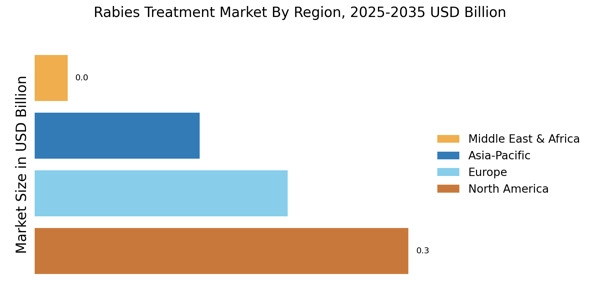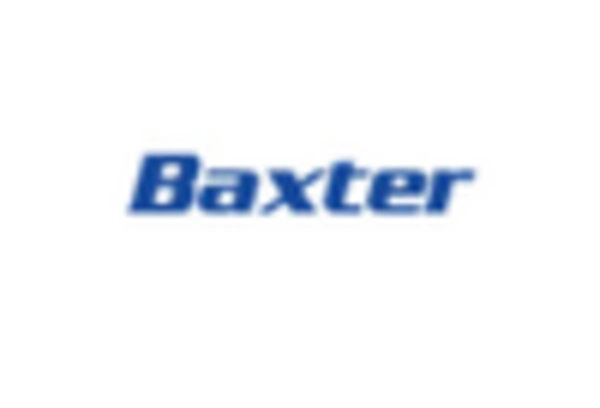Government Initiatives and Funding
Government initiatives aimed at combating rabies significantly influence the Rabies Treatment Market. Various countries have implemented national rabies control programs, which often include vaccination campaigns for domestic animals and public education on rabies prevention. For instance, funding allocated for rabies vaccination and treatment programs has seen a marked increase, reflecting a commitment to reducing rabies incidence. In 2023, several nations reported enhanced budget allocations for rabies control, which could lead to improved access to treatments and vaccines. These initiatives not only bolster public health but also create a conducive environment for pharmaceutical companies to innovate and expand their product offerings in the rabies treatment sector.
Advancements in Vaccine Development
Recent advancements in vaccine development are poised to transform the Rabies Treatment Market. Innovative approaches, such as recombinant DNA technology and novel adjuvants, have the potential to enhance vaccine efficacy and safety. The introduction of new rabies vaccines that require fewer doses or offer longer-lasting immunity could significantly impact treatment protocols. Market data indicates that the rabies vaccine segment is expected to witness substantial growth, driven by these technological advancements. As healthcare providers increasingly adopt these new vaccines, the overall demand for rabies treatment is likely to rise, further propelling market expansion. This trend suggests a promising future for both existing and emerging players in the rabies treatment landscape.
Increasing Incidence of Rabies Cases
The rising incidence of rabies cases across various regions appears to be a primary driver for the Rabies Treatment Market. According to the World Health Organization, rabies causes approximately 59,000 deaths annually, predominantly in developing countries. This alarming statistic underscores the urgent need for effective treatment options and preventive measures. As awareness of rabies transmission through animal bites grows, healthcare systems are likely to prioritize rabies treatment protocols. Consequently, this heightened focus on rabies management may lead to increased investments in research and development, ultimately expanding the market for rabies treatments. Furthermore, the potential for rabies outbreaks in urban areas, where stray animals are prevalent, could further stimulate demand for effective treatment solutions.
Rising Pet Ownership and Animal Welfare Awareness
The increasing trend of pet ownership and heightened awareness of animal welfare are contributing factors to the growth of the Rabies Treatment Market. As more households adopt pets, the risk of rabies transmission through unvaccinated animals becomes a pressing concern. This has led to a surge in demand for rabies vaccinations and treatments, as pet owners seek to protect their animals and families. Additionally, animal welfare organizations are actively promoting rabies vaccination campaigns, further driving awareness and treatment uptake. Market analysis indicates that regions with higher pet ownership rates are likely to experience a corresponding increase in rabies treatment demand, highlighting the interconnectedness of pet care and public health.
Emerging Markets and Healthcare Infrastructure Development
Emerging markets are witnessing significant improvements in healthcare infrastructure, which is likely to impact the Rabies Treatment Market positively. As countries invest in healthcare systems, access to rabies treatments and preventive measures is expected to improve. This is particularly relevant in regions where rabies remains endemic, as enhanced healthcare facilities can facilitate timely treatment for exposed individuals. Market data suggests that the rabies treatment sector in these emerging economies is poised for growth, driven by increased healthcare spending and the establishment of vaccination programs. Furthermore, the collaboration between governments and international organizations to strengthen healthcare infrastructure may lead to a more robust response to rabies outbreaks, thereby expanding the market for rabies treatments.

















